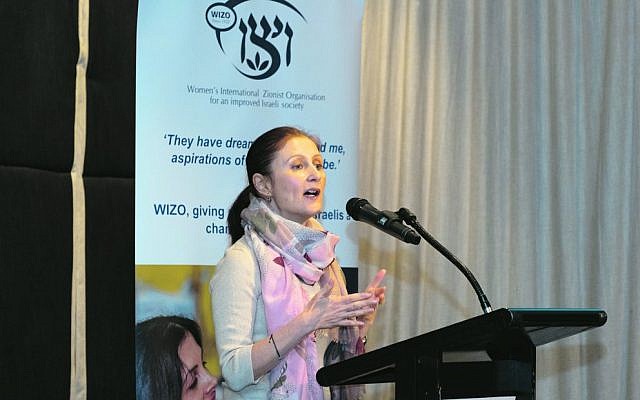WIZO’s place in the heart
AT WIZO Victoria’s annual luncheon, Israel-based, South African-born activist and journalist Rolene Marks noted the international women’s Zionist organisation’s wide impact in this, its 99th year.
Marks, who is visiting for the WIZO Australia Triennial Conference, said WIZO – founded in 1920 when pioneer Rebecca Sieff began a nutrition education program for local women after she arrived in Palestine – became an important platform for women in the burgeoning Zionist movement.
In the Middle East today – where women have few rights in regard to property, the workplace, relationships, and even over their own bodies – Israel stands out like a beacon, she said, but is not immune from problems.
Last year alone, 26 women were murdered in domestic violence cases, said Marks, adding that combating violence against women in the “closed” Charedi communities is particularly challenging. But even in these communities, WIZO has made a difference, with efforts to maximise victims’ sanctuary and safety.
The organisation helps women and their families in border communities such as Sderot, where regular rocket fire has traumatic results for many young lives, noted Marks.
At one point, said Marks, WIZO was a political party, and still liaises closely with the Knesset, lobbying for greater awareness of issues such as domestic violence and the impact of the high cost of living on women in Israel.
“The WIZO record is exemplary. At a time when the world is very conscious of the plight of human trafficking, it is WIZO in the Knesset that has partnered with police, social workers and with lawmakers to make sure we have changed the laws with regards to prostitution and the trafficking of women,” she said.
Also addressing guests, Andi Lew, who hosted the WIZO Victoria luncheon at Brighton Receptions, updated guests on Makom Balev (A Place in the Heart), a WIZO project in Beersheba supporting young women at risk with counselling, vocational rehabilitation, medical referrals, and emergency housing and meals.
PETER KOHN


comments